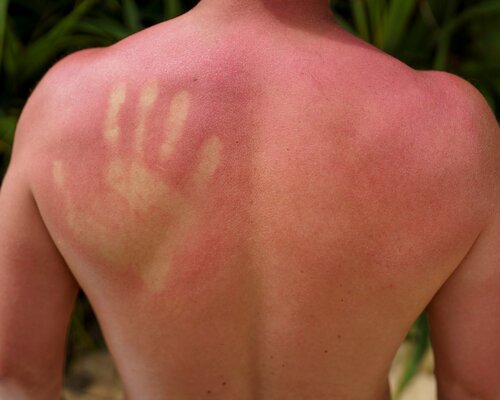Why Children Are at Risk of Dehydration.
Children, especially infants and toddlers, have difficulty indicating for themselves that they are thirsty. This makes them particularly susceptible to dehydration, especially if they are sick with symptoms such as vomiting, diarrhea, or fever. In addition, children lose fluids faster through sweating, which can lead to rapid fluid retention during hot weather.
Symptoms of Dehydration in Children
Recognizing dehydration in children can be tricky because they cannot always clearly communicate how they feel. Some symptoms to watch for are:
- Feeling thirsty: Young children may not always express this, but constant need to drink can be a signal.
- Dry tongue and lips: A dry mouth and lips may indicate dehydration.
- Crying without tears: In severe dehydration, children can no longer produce tears when crying.
- Little or no urine: Reduced urine production with dark and strong smelling urine may be a sign.
- Dented fontanel (in babies): The soft spot on a baby's head may feel dented when dehydrated.
Serious Symptoms of Dehydration
If dehydration is left untreated, symptoms may worsen to:
- Restlessness
- Confusion
- Drowsiness
- Loss of consciousness
Causes of Dehydration in Children
Several factors can lead to dehydration in children:
- Illness: Especially with illnesses such as vomiting, diarrhea or fever, the body loses a lot of fluids.
- Extreme sweating: For example, during hot weather or intense physical activity.
- Not drinking enough: Children sometimes forget to drink when they are busy or distracted.
- High ambient temperatures: Heat can exacerbate moisture loss, especially in young children.
Preventive Measures and First Aid
As a parent, there are several steps you can take to prevent dehydration and intervene promptly when symptoms appear:
- Offer small sips of liquid regularly: Even if the child does not want to drink, try to encourage them to drink small amounts anyway.
- Choose drinks the child likes: Water is ideal, but if the child prefers juices or sports drinks, that's fine too.
- Hydrate lips: This can help reduce thirst and promote fluid intake.
- Monitor fluid intake: Make sure your child is getting enough fluids according to the recommended guidelines for their age.
- Contact a family doctor: If you suspect your child is dehydrated, contact a family doctor immediately. Prompt treatment can be life-saving.
How Much Moisture Does a Healthy Child Need?
- Babies: About 150 ml per kilogram of body weight per day.
- Young children: About 50 ml per kilogram of body weight per day.
Conclusion
Dehydration is a serious health issue, especially in young children. By being alert to the symptoms, offering regular fluids and acting quickly on signs of dehydration, you as a parent can contribute to your children's health and well-being, even during the hottest summer days. Ensure proper hydration and enjoy a safe and healthy summer together!





